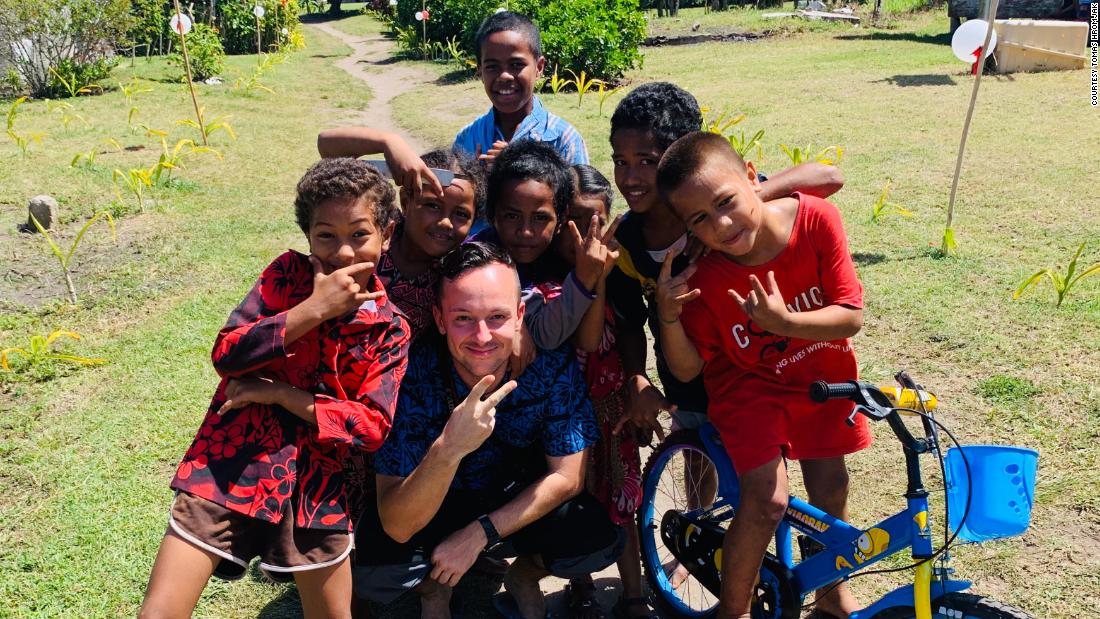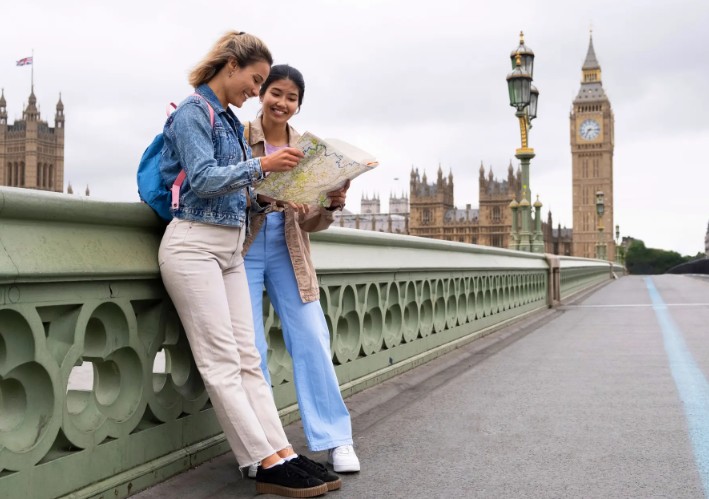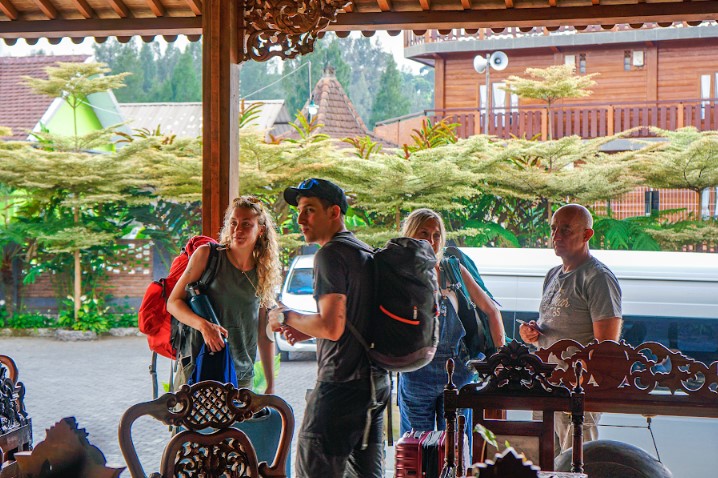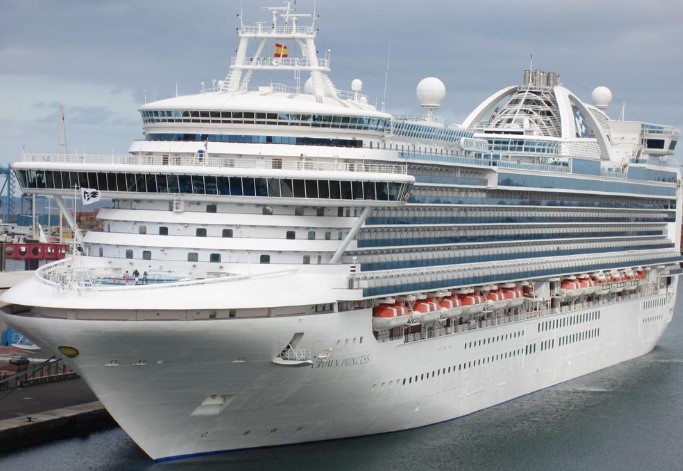(CNN) — After working in a corporate job for a number of years, budding photographer Tomas Hromjak decided it was finally the right time to take the year-long backpacking trip he’d been planning for years.
Hromjak, from Kosice, Slovakia, quit his job and bought a round-the-world ticket, which would see him visit destinations such as New Zealand, Australia, Los Angeles, Colombia, Cambodia, Indonesia, Bolivia and Germany.
In December 2019, Hromjak set off on the international trip he’d been dreaming of for as long as he could remember.
However, things didn’t quite turn out how he’d imagined. Just a few months into his travels, Covid-19 began to spread around the world, leading to widespread border closures and national lockdowns.
Not only did the chaos that ensued see him spend over six months in a place he’d only planned to visit for two weeks, he was also forced to abandon sections of his trip.
But while other travelers might have been tempted to pack up and go home, Hromjak has persevered. Last month, he marked two whole years on the road.
And far from being disappointed by the situation he’s ended up in, Hromjak feels incredibly lucky to be one of the few backpackers to have visited some of the most unique destinations in the world at a time when many travelers have been shut out.
“I’m seeing the world from a completely different perspective,” he tells CNN Travel from Guatemala. “For me, traveling is about experiencing and learning something new.
Unique opportunity

Tomas Hromjak set off on a year-long backpacking trip in 2019 and is still on the road.
Courtesy Tomas Hromjak
“I think this is a unique opportunity. But has it necessarily always been the easy one? No.”
The first part of his trip started off simply enough. He spent several months traveling around Asia, and had ticked off numerous countries, including Singapore, Vietnam, Laos and Myanmar, from his list before talk of a certain virus that was believed to have originated in China reached him.
“Some backpackers were quitting their travels, but I was persistent. Especially because this was something I had really wanted to do for my whole life. And I had been on the road for [just] three months.
“So I was like ‘no way, I’m not giving up.'”
Vowing to keep going until things “got really, really serious,” he flew to Tonga, a Polynesian country consisting of over 170 South Pacific islands, in March 2020 with the plan of staying for 15 days.
But the archipelago shut down soon after he arrived, and Hromjak ended up spending 222 days there.
However, he says he was more than happy to stay once he learned how tough restrictions were back home — Slovakia declared a state of emergency that same month — and is grateful to have been able to have spent an extended amount of time in one of the few places in the world that has remained Covid free throughout the entire pandemic.
“My parents basically said, ‘We think you’re better off where you are in Tonga,'” Hromjak says of the remote island, which remains shut to foreign nationals.
“I was living with a local family and I met some great people who basically took care of me, so there was no reason to go back.
“Although people often say that a few days in Tonga is enough, I realized there is enough to see and experience there easily for a month or even more.”
After spending months checking for border status and restriction updates, Hromjak accepted that there was no way he could enter New Zealand, where some of the toughest border restrictions had been implemented, to continue on his round-the-world trip.
The 34-year-old was also made aware that all of the upcoming flights for the trip he’d originally booked had been canceled.
While there was nothing to stop him from continuing on a different route, any trip he embarked on would now be very different to the one he’d envisioned when he first hit the road back in September 2019.
Challenging times

Hromjak has perserved with his travels, visiting places like the Colca Canyon in Peru, and documenting his experiences.
Tomas Hromjak/Courtesy Tomas Hromjak
Undeterred, he decided to head to Mexico, where restrictions have been relaxed, last October. He’s since visited Ecuador, Chile, Peru and Panama.
“There have been some really tight situations,” he admits. “But so far, everything has worked well. Now it’s not so much about where I want to go, it’s about where I can go.”
Although Hromjak has been through several different lockdowns and quarantines during his pandemic travels, he found Chile, where he was required to spend 10 days isolating before being allowed to go out and about, to be the toughest.
“That [visiting Chile] was on my list for most of my life. The restrictions were crazy, but I just decided to go,” he says, before pointing out that he didn’t encounter any other foreign travelers during the two months he spent there.
“Some people couldn’t believe I was really a tourist. It was definitely the most challenging place I visited because of all the restrictions.
“There was a curfew every weekend [a weekend curfew is in place in high risk regions]. I had to get permission to go from one vicinity to another.”
Unsurprisingly, he’s found the experience of traveling directly before and during the pandemic to be dramatically different, and is in the unusual position of having experienced both.
“The most striking difference is obviously the amount of tourists,” he says. “If you go to hotspots like Cancun or maybe Cusco in Peru, you will see people.
“But when you travel just a bit off the beaten path, there’s pretty much no one there.”
The social aspect is another significant change. For many travelers, making friends and meeting people from all over the world plays a monumental part in their backpacking adventures.
But Hromjak has met few other travelers in recent months, while any type of social gatherings have been few and far between — not that he’s complaining.
“You might see a couple of lone travelers now and then, but I haven’t met anyone who was traveling before the pandemic and stuck around,” he explains.
“If someone is willing to travel now, they shouldn’t expect it to be like before. That mingling between travelers and backpackers, I would say it doesn’t exist now. But to be fair, it wasn’t really something I was doing before.”
Positive reception

Hromjak captured a wedding rehearsal when he traveled to Cartagena, Colombia in November 2020.
Courtesy Tomas Hromjak
Although he’s found it tough to witness first hand how hard destinations reliant on tourism have been hit by the lack of travelers, he’s been amazed by the reception he’s received.
“The locals are really appreciating foreigners in lots of places,” he adds. “They’re really happy to talk with visitors and ask questions in a genuine way.”
According to Hromjak, this couldn’t be further away from how things were while he was traveling before the pandemic.
“Back then, especially in Asia, people were fed up with tourists, and I completely understand why,” he says.
“I experienced this in Vietnam where [it seemed like] people thought they could do whatever they wanted. They didn’t really respect any local or cultural rules.
“I went to some famous places and I did not enjoy it at all because of the massive overtourism and the behavior of tourists.
“People aren’t going to like me saying this. But it seemed like their [some of the tourists’] number one priority was to get a selfie in the best spot and everyone else didn’t matter. The other people [around them] didn’t matter, the local people didn’t matter.”
He would like to think that things might change once the world reopens fully again, but admits he isn’t hugely hopeful that this will be the case.
So for the time being, Hromjak is making the most of being able to visit places like Colombia and Peru with far fewer crowds.
“On one hand, I do enjoy the situation because you can actually go and experience some places which you probably wouldn’t back in the day,” he admits, pointing out that he’d been warned against visiting Colombia’s Cartagena because of the crowds, but had a completely different experience when he traveled there in November 2020.
Loss of spontaneity

Visiting the Desierto de la Tatacoa in Colombia in December 2020.
Courtesy Tomas Hromjak
“When I was there, it had a lot of tourists from Colombia, but it was definitely not overcrowded and I really loved it actually.
“Of course, what is sad, and what bothers me, is that a lot of small businesses are suffering. But I feel really happy that I’m able to contribute in some way. I try to go to local cafes and local places and support.”
As one would imagine, traveling from country to country during a global pandemic is no easy feat. There’s little room for spontaneity when quarantine, ever-changing restrictions and testing requirements are taken into account
“There is way more organization required,” he explains. “If you go somewhere for two or three weeks, it’s manageable to plan.
“But if you’re going somewhere for a longer time and you’re not going to the hotspots. It’s difficult.
“A lot of rules are changing rapidly. And a lot of things get closed at short notice, or the opening times are changing.
“For some parks in Costa Rica or Chile, you have to sign up the day before you go because of the limitations on people entering.
“So it does require a lot of patience, nerves and improvisation. But I enjoy the challenge in a way.”
He’s also found it tough to try to keep up with all the different rules and restrictions in place in separate destinations.
“Now it’s not so crazy,” he says. “But half a year ago, the rules were changing in every country every week, in terms of tests, who can visit, which countries are on the red list, which are not. This is the difficult part.”
Hromjak’s vaccination status is also starting to impact his travels. As he’s been away for two years and hasn’t spent much time in one place, he hasn’t been able to get vaccinated.
New outlook

Backpacking during the pandemic has changed Hromjak’s perspective on travel and he’s in no hurry to go home.
Courtesy Tomas Hromjak
Hromjak aims to rectify this by returning home at Christmas to see his family and arranging to be vaccinated while he’s there.
However, while he’s keen to spend the holidays with his loved ones, Hromjak has no intention of staying in Slovakia for long.
In fact, he says learning the full extent of how life has changed for his family, friends and former colleagues has only made him more determined to keep traveling.
“From talking to my ex-colleagues, I knew that I wasn’t really missing out on anything in terms of work experience,” he says.
“They [his former colleagues] were at home for a year mostly doing Skype and Zoom calls.
“I’m thinking about continuing for a while because I don’t know if or when I want to go back to what I was doing before.”
For Hromjak, the rarity of traveling around the world during such an uncertain time and documenting his experiences is too good an opportunity to give up and his perspective on the world and travel in general has shifted.
“I used to hop from one place to another too much,” he says. “But now I’ve slowed down, and I’m also experiencing more things that you don’t find anywhere else.
“I’m talking to locals, visiting indigenous people and doing all kinds of things I didn’t before. I don`t actually feel like a tourist anymore.”
Top image credit: Tomas Hromjak






More Stories
The Ultimate Guide to Mount Bromo and Ijen Tour: A Journey into Nature’s Wonders
The Complete Guide to Pantheon Tickets
Journey Through Italy